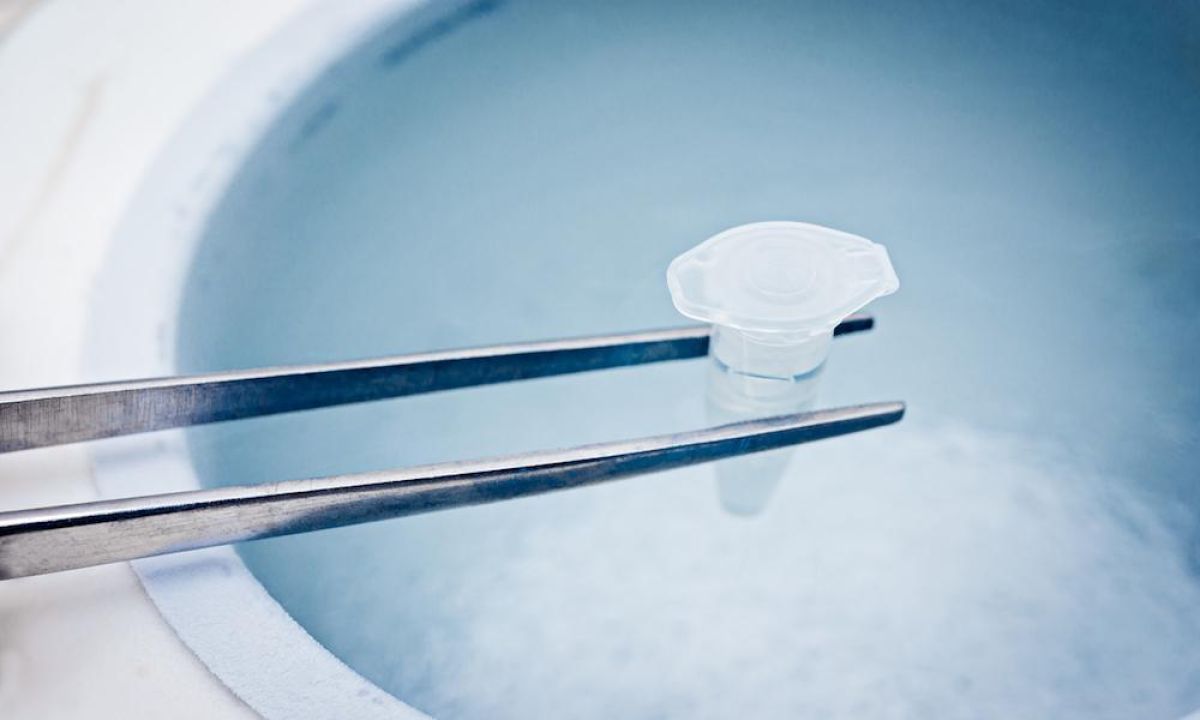The Benefits of Egg Freezing

Egg freezing has been used to preserve female fertility since the late 1990s. It was first offered to young women diagnosed with cancer, so they could protect their ability to have a biological child if the disease or its treatment left them sterile.
Today egg freezing is available for any woman who wants to temporarily stop her biological clock for a better chance at having a healthy baby — when the time is right for her.
If you’re not ready to have children yet, but you know you want them someday, egg freezing can help you control your fertility until you finish your education, meet the right partner, take your career to the next level, or build your nest egg. In short, egg freezing has revolutionized the way women approach family planning.
Here at California Center for Reproductive Health, we’re proud to offer an affordable and effective egg freezing program built on advanced cryopreservation protocols. If you’d like to know how egg freezing can benefit you, read on:
Egg freezing pauses your biological clock
The average woman is born with about three million eggs in her ovaries. Every day of her life, some of those eggs reach a certain point of maturity, stop growing, and die off. By the time a woman reaches puberty, she has closer to 300,000 eggs, and those number continue to decline with age.
The number of eggs in a woman’s ovaries — also known as her ovarian reserve — is most favorable for reproduction when she’s in her early twenties. At this age, the odds that a woman will get pregnant each month is about 25%. Those odds drop to 15% when women enter their thirties, and plummet to just 5% by their 40s.
Because egg freezing harvests eggs from your ovaries for long-term cryopreservation in a sterile laboratory environment, it helps protect your ability to have biological children later in life, when your ovarian reserve is too low for you to easily become pregnant.
Egg freezing helps preserve egg quality
Declining egg numbers aren’t the only thing you need to worry about as you age — the quality of your eggs is also more likely to suffer as time goes by.
An immature egg has 92 chromosomes, which is twice the amount of any other cell in your body. As eggs mature, they systematically reduce their number of chromosomes down to 23. Then when an egg is fertilized by a sperm, which also has 23 chromosomes, the new embryo has 46 chromosomes, which is the right number for a healthy human baby.
As you age, the mechanisms that help eggs reach maturity with the correct number of chromosomes don’t function as well as they used to, and your eggs are more likely to contain chromosomal errors. These errors tend to become more common starting at about the age of 35, which is why women past that age have an increased risk of suffering a miscarriage or having a baby with genetic abnormalities.
Preserving your eggs when you’re in your thirties is an ideal way to protect their integrity and ensure you have healthy eggs available should you wish to become pregnant in your late thirties or early forties.
Egg freezing puts you in control
Egg freezing allows you to focus on your life goals in your early adult years without feeling the constant worry of a ticking biological clock. It can take away your anxiety about your future fertility and leave you feeling empowered.
But preserving your eggs isn’t just about securing your future fertility — it’s also about taking the pressure off your shoulders for a while, so you don’t have to rush into a relationship or take on more than you’re ready for, just because you’re getting older.
If you’d like to learn more about the benefits of egg freezing, call our office today, or schedule a visit using our convenient online booking tool. We’re here to help you.
Eliran Mor, MD
Reproductive Endocrinologist located in Encino, Valencia & West Hollywood, CA
FAQ
What does a reproductive endocrinologist and infertility specialist do?
Reproductive endocrinology and Infertility is a sub-specialty of Obstetrics and Gynecology. In addition to managing medical and surgical treatment of disorders of the female reproductive tract, reproductive endocrinologist and infertility (REI) specialists undergo additional years of training to provide fertility treatments using assisted reproductive technology (ART) such as in vitro fertilization.
Reproductive endocrinologists receive board certification by the American Board of Obstetrics and Gynecology in both Obstetrics and Gynecology and Reproductive Endocrinology and Infertility.
When should I see an REI specialist?
In general, patients should consider consulting with an REI specialist after one year of trying unsuccessfully to achieve pregnancy. The chance of conceiving every month is around 20%, therefore after a full year of trying approximately 15% of couples will still not have achieved a pregnancy.
However, if a woman is over the age of 35 it would be reasonable to see a fertility specialist earlier, typically after 6 months of trying.
Other candidates to seek earlier treatment are women who have irregular menses, endometriosis, fibroids, polycystic ovary syndrome (PCOS), women who have had 2 or more miscarriages, or problems with the fallopian tubes (prior ectopic pregnancy).
What are the reasons we are having trouble conceiving?
Approximately 1/3 of the time cause for infertility is a female factor, 1/3 of the time a male factor, and the remaining 1/3 a couples’ factor.
At CCRH, we emphasize the importance of establishing a correct diagnosis. Both partners undergo a comprehensive evaluation including a medical history and physical exam.
Furthremore, the woman’s ovarian reserve is assessed with a pelvic ultrasound and a hormonal profile. A hysterosalpingogram (HSG) will confirm fallopian tube patency and the uterine cavity is free of intracavitary lesions. A semen analysis is also obtained to evaluate for concentration, motility, and morphology of the sperm.
Additional work up is then individualized to direct the best possible treatment option for each couple.
What is IVF? What is the process like?
In vitro fertilization (IVF) is the process that involves fertilization of an egg outside of a woman’s body.
The process starts with fertility drugs prescribed to help stimulate egg development. In your natural cycle, your body is only able to grow one dominant egg, but with stimulation medication we can recruit multiple eggs to continue to grow. After about 8-10 days of stimulation, the eggs are surgically retrieved and then fertilized with sperm in a specialized laboratory. Fertilized eggs are then cultured under a strictly controlled environment within specialized incubators in the IVF laboratory for 3-5 days while they develop as embryos. Finally, embryos (or an embryo) are transferred into the uterine cavity for implantation.
Should I have IVF?
Before deciding if IVF is the right choice, it’s important to sit down with an REI specialist to discuss available treatment options. For some people, other methods such as fertility drugs, intrauterine insemination (IUI) may be the best first choice treatment. At CCRH, we believe each individual couple is unique and not everyone needs IVF.
Is the IVF procedure painful?
While not painful, the fertility medications may some side effects including headaches, hot flashes, mood swings, and bloating. The injection sites may also bruise.
Will IVF guarantee a baby?
Unfortunately, no. Many people think once they start IVF it’s a matter of time that they will be pregnant and have a baby. But according to national statistics per the Society of Assisted Reproduction (SART), on average 40% of assisted reproduction cycles achieve live births in women under age 35. The chances of success then continue to decrease with advancing age.
At CCRH, we employ only evidence-based interventions to ensure patient safety and optimal outcome. While we cannot guarantee a baby, we guarantee that you will receive the best, most advanced, personalized care to help you maximize your chance of a baby.
What is the success rate for IVF?
The average IVF success rate (success measured in live birth rate) using one’s own eggs begins to drop around age 35 and then rapidly after age 40. This is due to the decline in egg quantity and egg quality as a woman ages.
Our clinic’s success rate consistently beats the national average year after year.
Do insurance plans cover infertility treatment? How much does IVF cost?
Individual insurance plans often do not have any coverage for infertility treatments. If you have a group plan, you can call members services to see if they have coverage for infertility (including consultation/workup and IVF).
After your consultation with our REI specialist, one of our dedicated account managers with sit with you to go over the cost of treatment.




